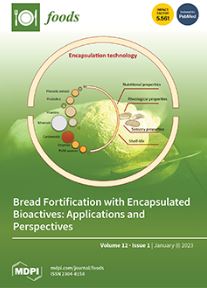In vitro antioxidant activities of plant polyphenol extracts and their combined effect with flaxseed on raw and cooked breast muscle fatty acid content, lipid health indices and oxidative stability in slow-growing Sasso chickens
Abstract
Adding flaxseed was found to decrease oxidative stability in feed and increase the antioxidant needs of chicken. This has also been associated with a decrease in the nutritional value and oxidative stability of meat if sufficient dietary antioxidants are not included. Furthermore, dietary flaxseed has been explored in fast-growing chickens as such studies are limited with slow-growing chickens. Thus, this study aimed to evaluate the effects of feeding plant polyphenol extracts as an antioxidant alongside flaxseed on fatty acid content, oxidative stability, and lipid health indices in breast muscle of slow-growing Sasso T451A dual-purpose chicken. A total of 126 chickens assigned to six groups (seven replicates of three) were fed on NC (control and no antioxidants), FS (75 g flaxseed and no antioxidants), VE8 (75 g flaxseed and 800 mg vitamin E), TS8 (75 g flaxseed and 800 mg Thymus schimperi), DA8 (75 g flaxseed and 800 mg Dodonaea angustifolia) and CD8 (75 g flaxseed and 800 mg Curcuma domestica) extract per kg diet. Feeding on CD8 and VE8 in raw and TS8, CD8 and VE8 diets in cooked breast muscle increased (p < 0.05) the C22:6n − 3 (DHA) and C20:5n − 3 (EPA) contents compared to the FS diet. Feeding FS increased (p < 0.05) the malondialdehyde (MDA) content in breast muscle, whereas TS8 in cooked and raw and CD8 and DA8 diets in raw breast muscle decreased it (p < 0.05). No added benefit was observed in feeding VE8 over plant extracts in terms of improving fatty acid composition and lipid health indices and reducing lipid oxidation in breast meat.

